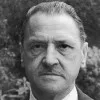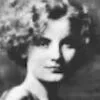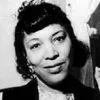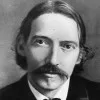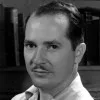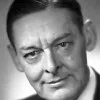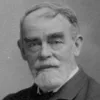I hope you’ll make mistakes. If you make mistakes, it means you’re out there doing something. And the mistakes in themselves can be very useful. I once misspelled Caroline, in a letter, transposing the As and the O, and I thought, “Coraline looks almost like a real name…”
Neil Gaiman (b. 1960) British author, screenwriter, fabulist
Speech (2012-05-17), Commencement, University of the Arts, Philadelphia [09:17]
(Source)
Quotations about:
attempt
Note not all quotations have been tagged, so Search may find additional quotes on this topic.
When I was young I was amazed at Plutarch’s statement that the elder Cato began at the age of eighty to learn Greek. I am amazed no longer. Old age is ready to undertake tasks that youth shirked because they would take too long.
W. Somerset Maugham (1874-1965) English novelist and playwright [William Somerset Maugham]
The Summing Up, ch. 73 (1934)
(Source)
The man who has done his level best, and who is conscious that he has done his best, is a success.
I hope that in this year to come, you make mistakes.
Because if you are making mistakes, then you are making new things, trying new things, learning, living, pushing yourself, changing yourself, changing your world. You’re doing things you’ve never done before, and more importantly, you’re Doing Something.
So that’s my wish for you, and all of us, and my wish for myself. Make New Mistakes. Make glorious, amazing mistakes. Make mistakes nobody’s ever made before. Don’t freeze, don’t stop, don’t worry that it isn’t good enough, or it isn’t perfect, whatever it is: art, or love, or work or family or life.
Whatever it is you’re scared of doing, Do it.
Make your mistakes, next year and forever.Neil Gaiman (b. 1960) British author, screenwriter, fabulist
Blog entry (2011-12-31), “My New Year Wish”
(Source)
Three Failures denote uncommon strength. A weakling has not enough grit to fail thrice.
Minna Antrim (1861-1950) American epigrammatist, writer
At the Sign of the Golden Calf (1905)
(Source)
Who does the best his circumstance allows
Does well, acts nobly; angels could no more.Edward Young (1683-1765) English poet
Poem (1742-11), “Night the 2nd: On Time, Death, and Friendship,” ll. 91-92, The Complaint: Or, Night Thoughts, Vol. 1 (1744)
(Source)
CHARLIE ANDERSON: I wanna say somethin’. I’ve known since the train that we weren’t liable to find him. It was just a hair of a chance that we got Sam back. I knew that. Maybe I knew even before we left home, but somehow I just had to try! And if we don’t try, we don’t do. And if we don’t do, why are we here on this earth?
Mama exhorted her children at every opportunity to “jump at de sun.” We might not land on the sun, but at least we would get off the ground.
Zora Neale Hurston (1891-1960) American writer, folklorist, anthropologist
Dust Tracks on a Road, ch. 2 “My Folks” (1942)
(Source)
Better hazard once than be always in fear.
Thomas Fuller (1654-1734) English physician, preacher, aphorist, writer
Gnomologia: Adages and Proverbs (compiler), # 906 (1732)
(Source)
The only time you don’t want to fail is the last time you try a thing.
Charles F. Kettering (1876-1958) American inventor, engineer, researcher, businessman
“Don’t Be Afraid to Stumble,” The Rotarian (Jan 1952)
(Source)
This was a favorite phrase of Kettering's, and many versions exist or are attributed.
- "The only time you mustn't fail is the last time you try." (The Rotarian (May 1953))
- "The only time you don't want to fail is the last time you try."
- "The only time you can't afford to fail is the last time you try."
- "The only time you don't fail is the last time you try something, and it works."
‘Tis Perseverance that prevails.
Thomas Fuller (1654-1734) English physician, preacher, aphorist, writer
Gnomologia: Adages and Proverbs (compiler), # 5110 (1732)
(Source)
Surely, in the light of history, it is more intelligent to hope rather than to fear, to try rather than not to try. For one thing we know beyond all doubt: Nothing has ever been achieved by the person who says, “It can’t be done.”
You have deeply ventured;
But all must do so who would greatly win.George Gordon, Lord Byron (1788-1824) English poet
Marino Faliero, Doge of Venice, Act 1, sc. 1 [Doge] (1821)
(Source)
I had applied for the nuclear submarine program, and Admiral Rickover was interviewing me for the job. It was the first time I met Admiral Rickover, and we sat in a large room by ourselves for more than two hours, and he let me choose any subjects I wished to discuss. Very carefully, I chose those about which I knew most at the time, current events, seamanship, music, literature, naval tactics, electronics, gunnery and he began to ask me a series of questions of increasing difficulty. In each instance, he soon proved that I knew relatively little about the subject I had chosen.
He always looked right into my eyes, and he never smiled. I was saturated with cold sweat.
Finally, he asked a question and I thought I could redeem myself. He said, “How did you stand in your class at the Naval Academy?” Since I had completed my sophomore year at Georgia Tech before entering Annapolis as a plebe, I had done very well, and I swelled my chest with pride and answered, “Sir, I stood fifty-ninth in a class of 820!”
I sat back to wait for the congratulations, which never came. Instead, the question: “Did you do your best?” I started to say, “Yes, sir,” but I remembered who this was and recalled several of the many times at the Academy when I could have learned more about our allies, our enemies, weapons, strategy, and so forth. I was just human. I finally gulped and said, “No, sir, I didn’t always do my best.”
He looked at me for a long time, and then turned his chair around to end the interview. He asked one final question, which I have never been able to forget or to answer. He said, “Why not?”
I sat there for a while, shaken, and then slowly left the room.
When we watch a child trying to walk, we see its countless failures; its success are but few. If we had to limit our observation within a narrow space of time, the sight would be cruel. But we find that in spite of its repeated failures, there is an impetus of joy in the child which sustains it in its seemingly impossible task. We see it does not think of its falls so much as of its power to keep its balance though for only a moment.
Rabindranath Tagore (1861-1941) Indian Bengali poet, philosopher [a.k.a. Rabi Thakur, Kabiguru]
Sadhana: The Realization of Life, ch. 3 (1913)
(Source)
Talking of the danger of being mortified by rejection, when making approaches to the acquaintance of the great, I observed, “I am, however, generally for trying, ‘Nothing venture, nothing have.'” JOHNSON. “Very true, sir; but I have always been more afraid of failing, than hopeful of success.”
What goals would you be setting for yourself if you knew you could not fail?
Robert H. Schuller (1926-2015) American televangelist, pastor, motivational speaker, author
You Can Become the Person You Want To Be, ch. 2 (1973)
Earliest version of this aphorism. Often attributed (without citation) to Eleanor Roosevelt. See here for more information.Variants:
- "What would you attempt if you knew you could not fail?"
- "If you knew you cold not fail, what would you try?"
- "What great things would you attempt if you knew you could not fail?"
That is the question of the New Frontier. That is the choice our nation must make — a choice that lies not merely between two men or two parties, but between the public interest and private comfort — between national greatness and national decline — between the fresh air of progress and the stale, dank atmosphere of “normalcy” — between determined dedication and creeping mediocrity. All mankind waits upon our decision. A whole world looks to see what we will do. We cannot fail their trust, we cannot fail to try.
Nothing will ever be attempted, if all possible objections must be first overcome.
Samuel Johnson (1709-1784) English writer, lexicographer, critic
The History of Rasselas, Prince of Abissinia, ch. 6 (1759)
(Source)
DREAM: It is sometimes a mistake to climb; it is always a mistake never even to make the attempt.
Neil Gaiman (b. 1960) British author, screenwriter, fabulist
Sandman, Book 6. Fables and Reflections, Vertigo Preview, “Fear of Falling” (1992-12)
(Source)
Nought venter nought have.
John Heywood (1497?-1580?) English playwright and epigrammist
Proverbes, Part 1, ch. 11 (1564)
(Source)
More commonly rendered, "Nothing ventured, nothing gained."
man’s life is interesting primarily when he has failed — I well know. For it’s a sign that he tried to surpass himself.
Not failure, but low aim, is crime.
James Russell Lowell (1819-1891) American diplomat, essayist, poet
“For an Autograph,” st. 5 (1868)
(Source)
There is no greater mistake than to try to leap an abyss in two jumps.
David Lloyd George (1863-1945) Welsh politician, statesman, UK Prime Minister (1916-22)
War Memoirs of David Lloyd George, Vol. 2, ch. 24 (1933)
Not original with Lloyd George, but usually attributed to him. For more information, see here. Variants:
- "Don’t be afraid to take a big step. You can’t cross a chasm in two small jumps."
- "The most dangerous thing in the world is to leap a chasm in two jumps."
- "Anything can be achieved in small, deliberate steps. But there are times you need the courage to take a great leap; you can't cross a chasm in two small jumps."
- "There is nothing more dangerous than to leap a chasm in two jumps."
LUCIO: Our doubts are traitors
And make us lose the good we oft might win,
By fearing to attempt.William Shakespeare (1564-1616) English dramatist and poet
Measure for Measure, Act 1, sc. 4, l. 85ff (1.4.85-87) (1604)
(Source)
For there is no comparison between that which we may lose by not trying and by not succeeding; since by not trying we throw away the chance of an immense good; by not succeeding we only incur the loss of a little human labour. But as it is, it appears to me from what has been said, and also from what has been left unsaid, that there is hope enough and to spare, not only to make a bold man try, but also to make a sober-minded and wise man believe.
[Non enim res pari periculo non tentatur, et no succedit; cum in illo ingentis boni, in hoc exiguae humanae operae, jactura vertatur. Verum ex dictis, atque etiam ex non dictis, visum est nobis spei abunde subesse, non tantum homini strenuo ad experiendum, sed etiam prudenti et sobrio ad credendum.]
Francis Bacon (1561-1626) English philosopher, scientist, author, statesman
Instauratio Magna, Part 2 “Novum Organum” [The New Organon],” Book 1, Aphorism # 114 (1620) [tr. Spedding (1858)]
(Source)
(Source (Latin)). Alternate translations:For the risk attending want of success is not to be compared with that of neglecting the attempt; the former is attended with the loss of a little human labour, the latter with that of an immense benefit. For these and other reasons, it appears to us that there is abundant ground to hope, and to induce not only those who are sanguine to make experiment, but even those who are cautious and sober to give their assent.
[tr. Wood (1831)]For it is not a case where there is an equal risk in not trying and not succeeding; since in the former instance we risk a huge advantage; in the latter a little human labour is thrown away. But from what has been said, and also from what has not been said, it seems to us that there is abundant ground of hope, not only to justify a stout-hearted man in trying, but even a prodent and sober man in believing.
[tr. Johnson (1859)]For the danger of not trying and the danger of not succeeding are not equal, since the former risks the loss of great good, the latter of a little human effort. But from what we have said and from other things which we have not said, it has seemed to us that we have abundance of hope, whether we are men who press forward to meet new experiences, or whether we are careful and slow to believe.
[tr. Silverthorne (2000) "The Great Renewal"]The loss that may come from not trying is much greater than what may come from trying and not succeeding: by not trying we throw away the chance of an immense good; by not succeeding we only incur the loss of a little human labour. But from what I have said (and from some things that I haven’t said) it seems to me that there is more than enough hope not only to get a vigorous man to try but also to make a sober-minded and wise man believe that he will succeed.
[tr. Bennett (2017)]
I have tried my best to give the nation everything I had in me. There are probably a million people who could have done the job better than I did it, but I had the job and I had to do it, and I always quote an epitaph on a tombstone in Tombstone, Ariz.: “Here lies Jack Williams. He done his damnedest.”
Harry S Truman (1884-1972) US President (1945-1953)
Time, “The Presidency: The Answer Man” (28 Apr. 1952)
Speaking in Winslow, AZ (15 Jun 1948), Truman said, "You know, the greatest epitaph in the country is here in Arizona. It’s in Tombstone, Ariz., and this epitaph says, 'Here lies Jack Williams. He done his damndest.' I think that is the greatest epitaph a man could have."
My mother drew a distinction between achievement and success. She said that achievement is the knowledge that you have studied and worked hard and done the best that is in you. Success is being praised by others, and that’s nice too, but not as important or satisfying. Always aim for achievement and forget about the success.
There are two great rules in life, the one general and the other particular. The first is that every one can in the end get what he wants if he only tries. This is the general rule. The particular rule is that every individual is more or less of an exception to the general rule.
Samuel Butler (1835-1902) English novelist, satirist, scholar
The Note-Books of Samuel Butler (1912)
(Source)
The baby rises to its feet, takes a step, is overcome with triumph and joy — and falls flat on its face. It is a pattern for all that is to come! But learn from the bewildered baby. Lurch to your feet again. You’ll make the sofa in the end.
Pamela Brown (1924-1989) British writer, actress, television producer
The Swish of the Curtain (1938)


